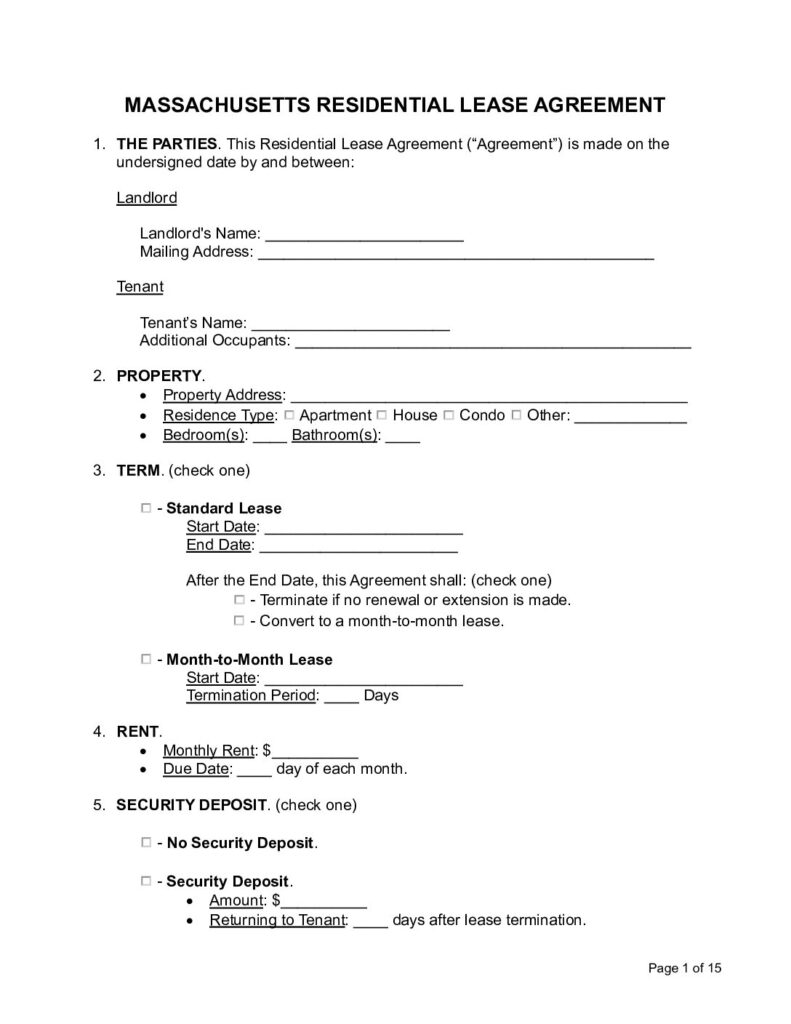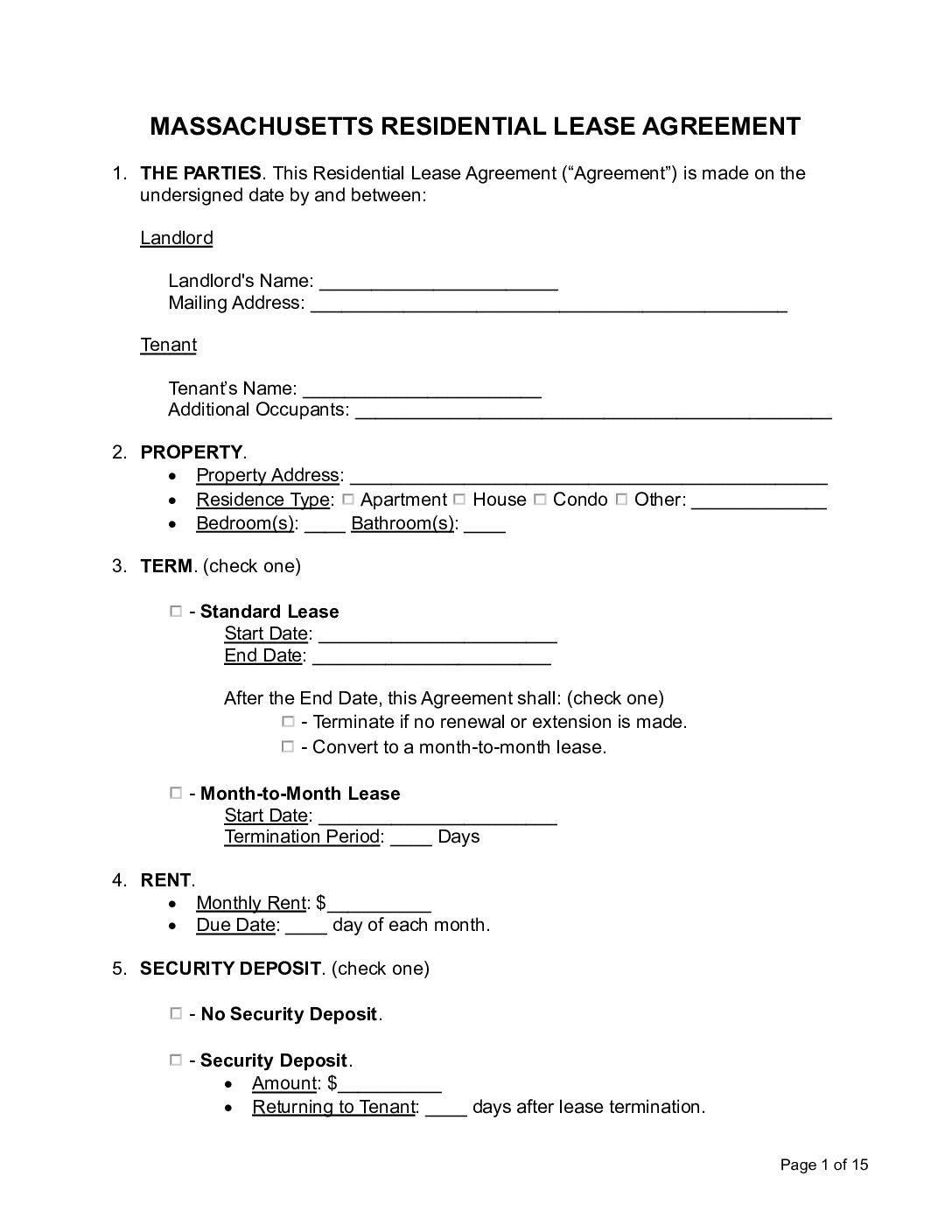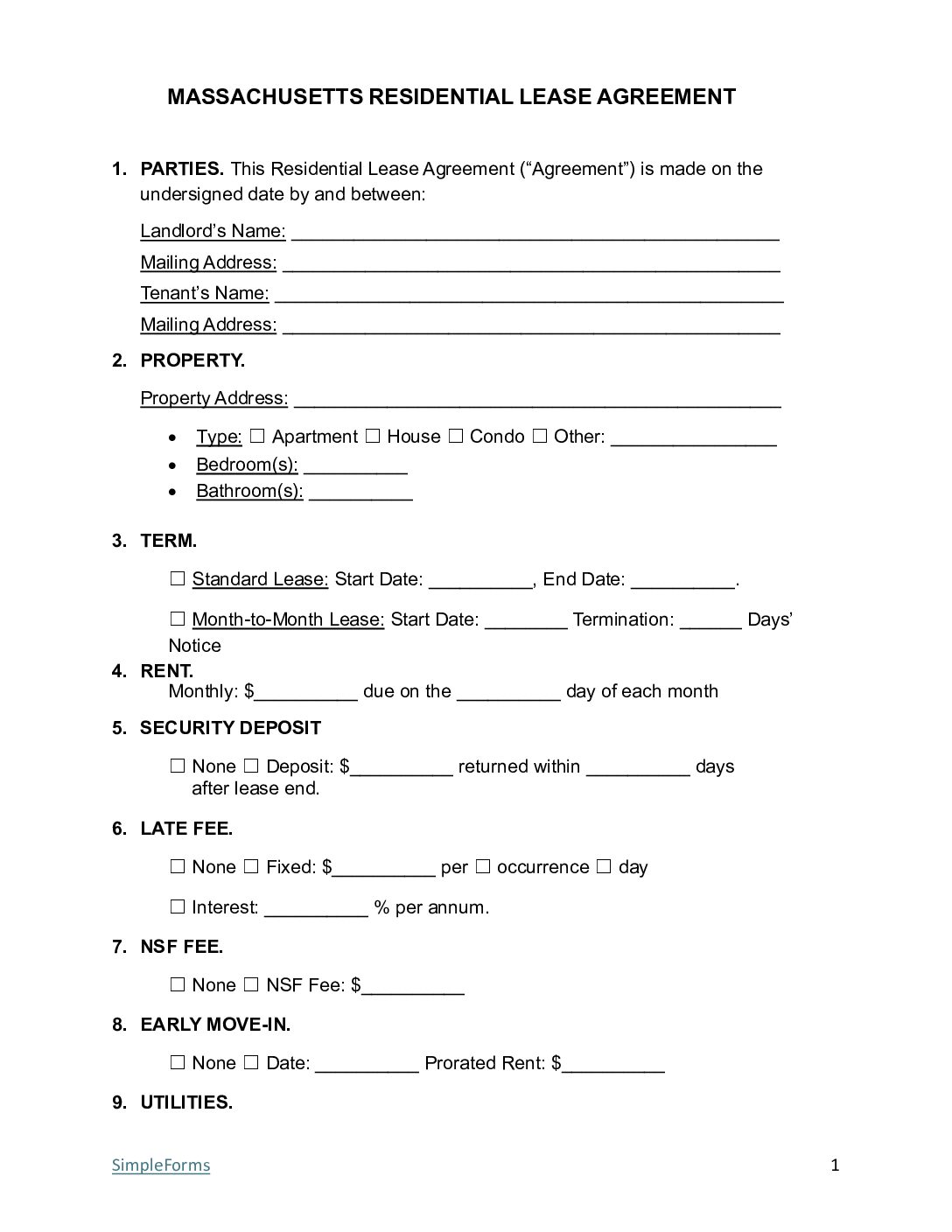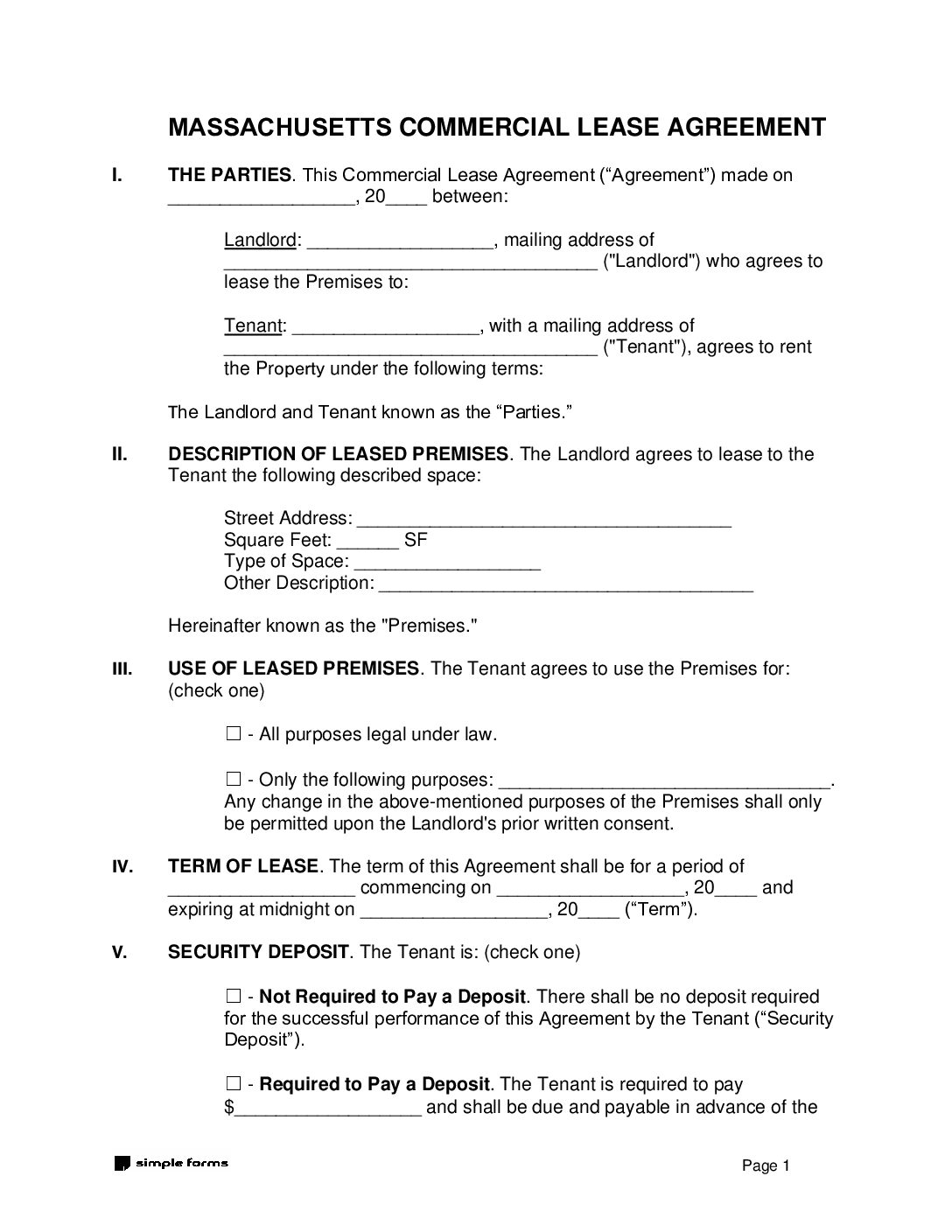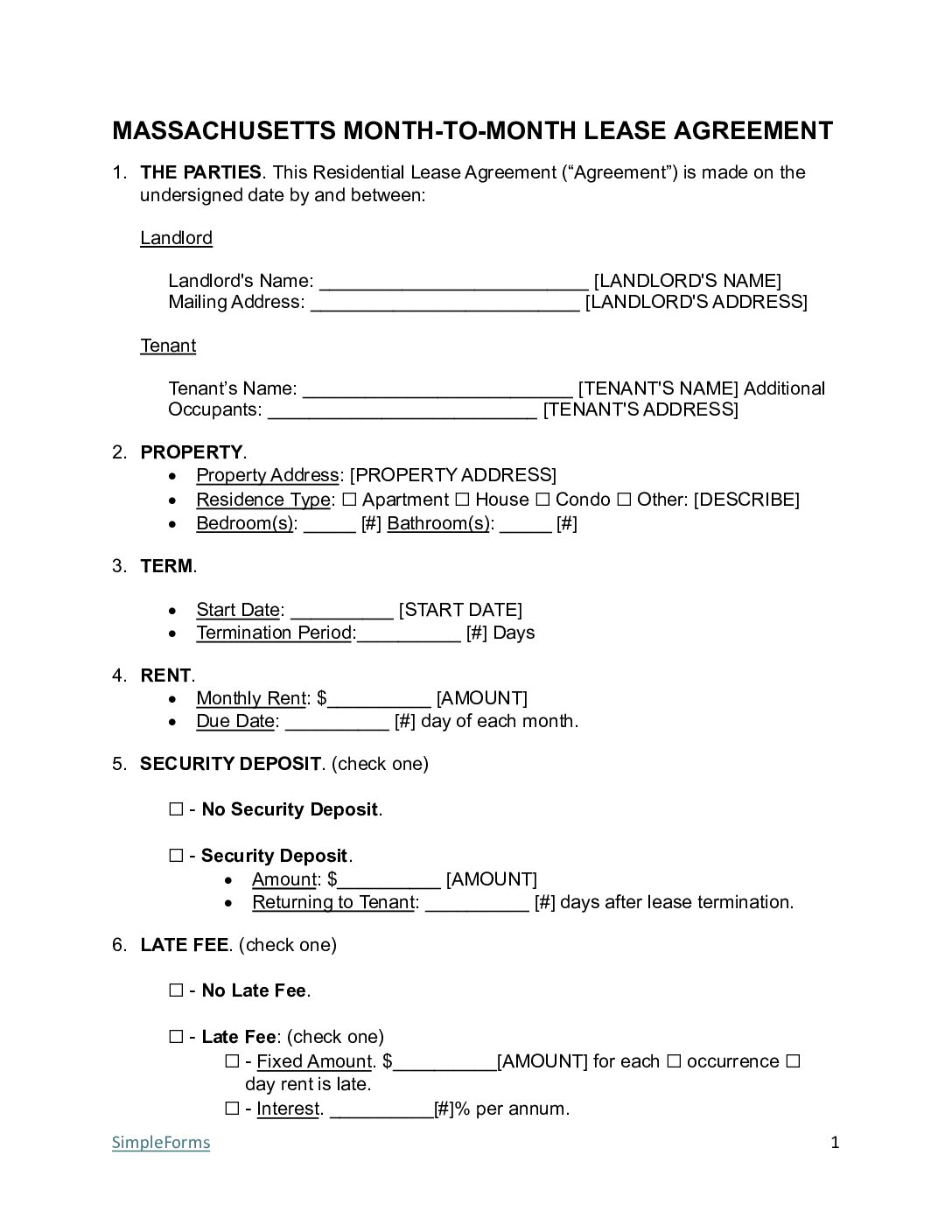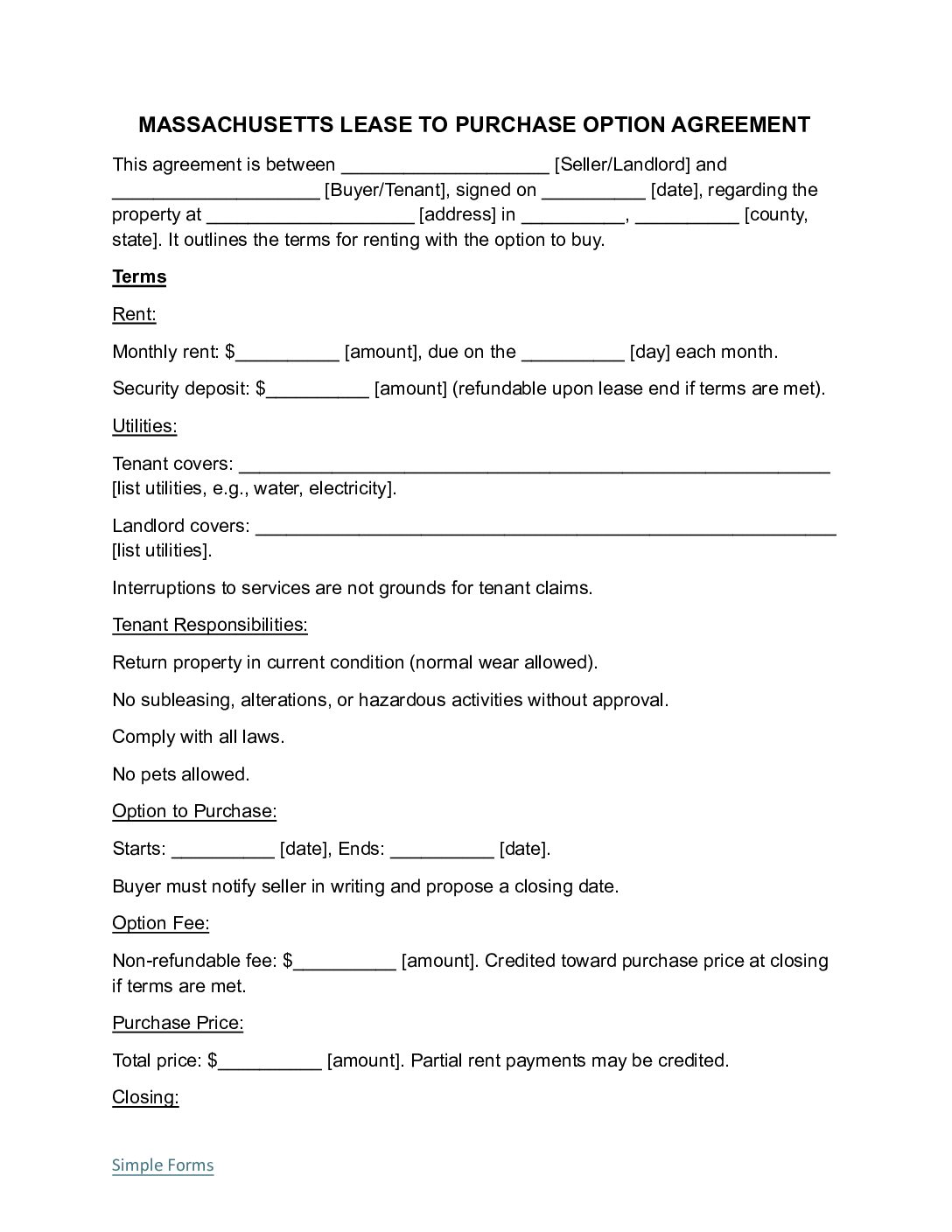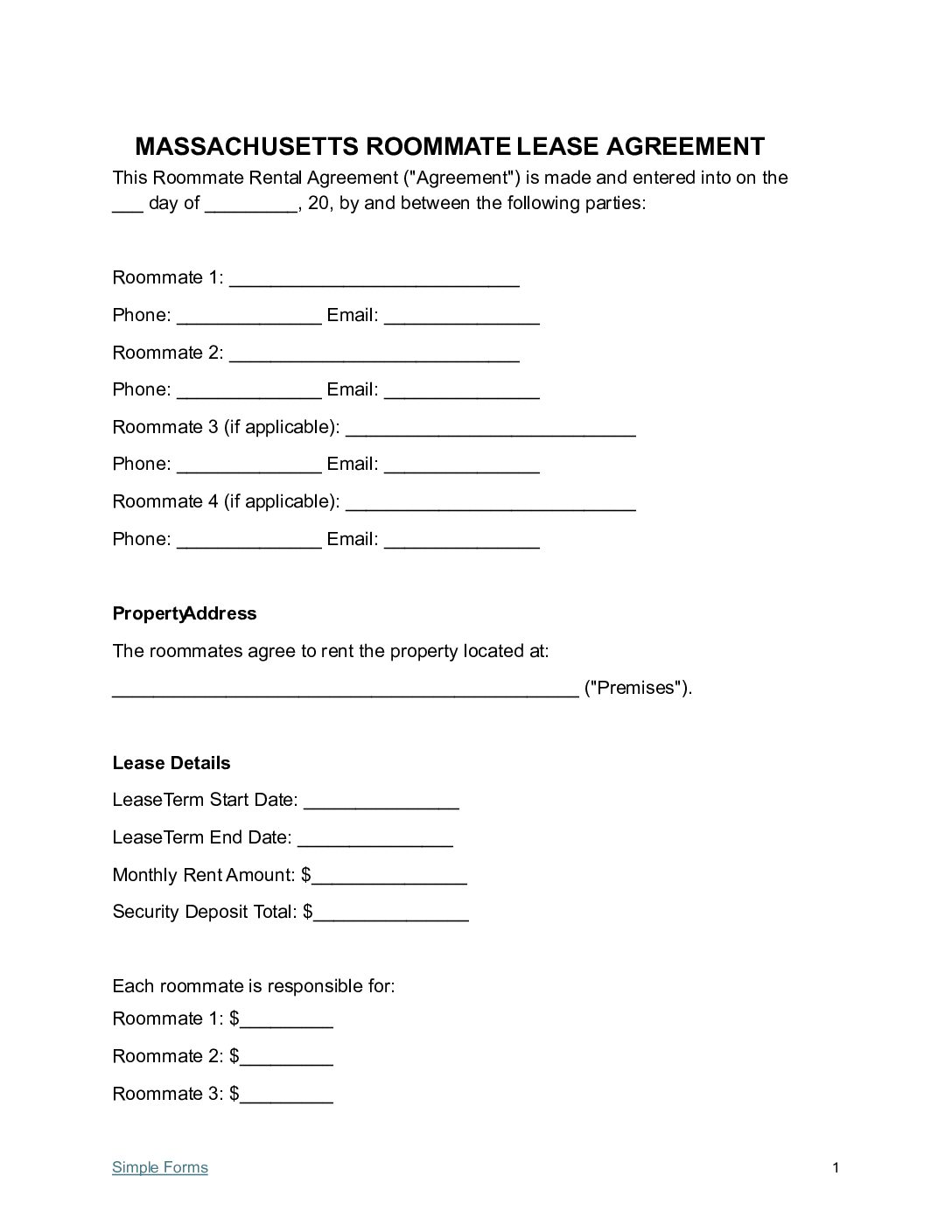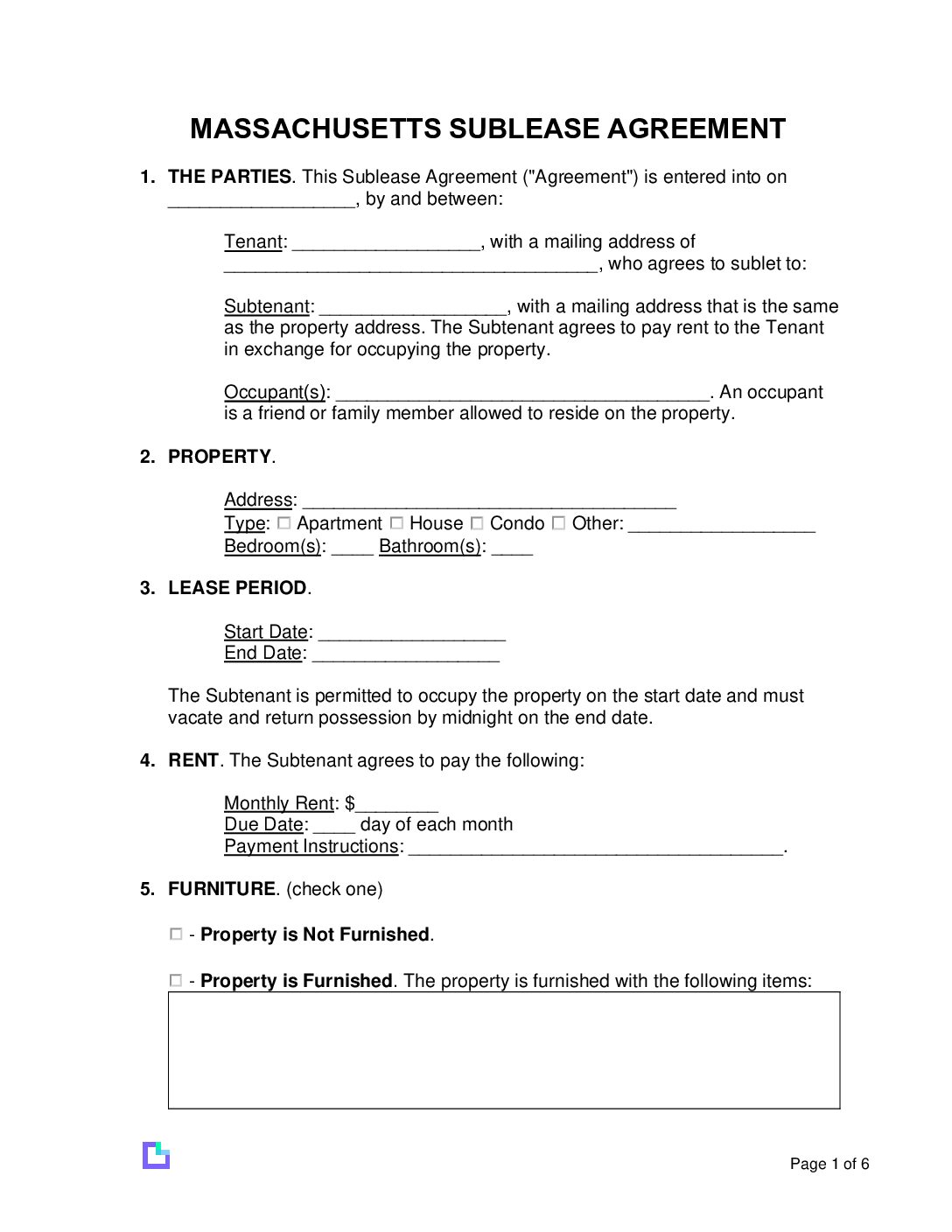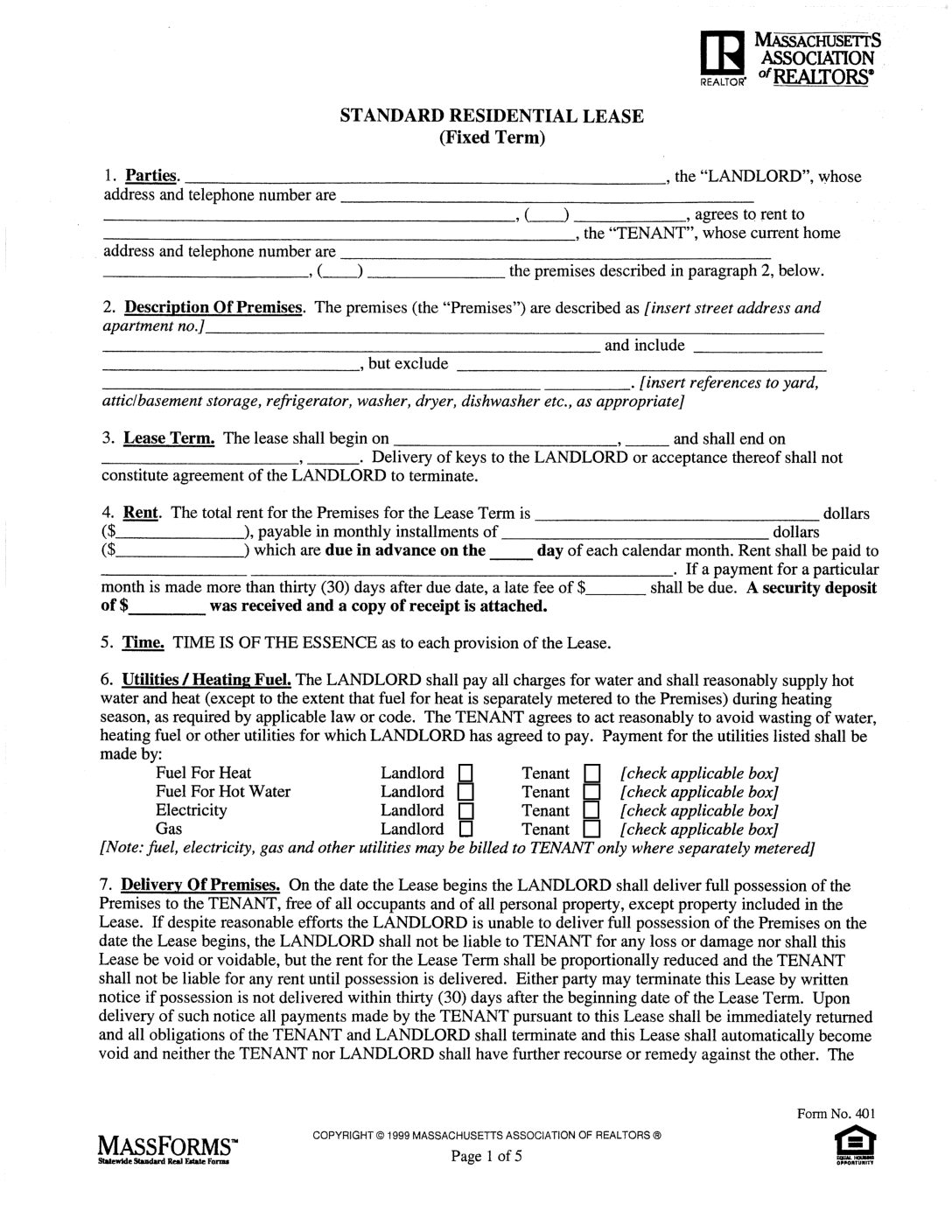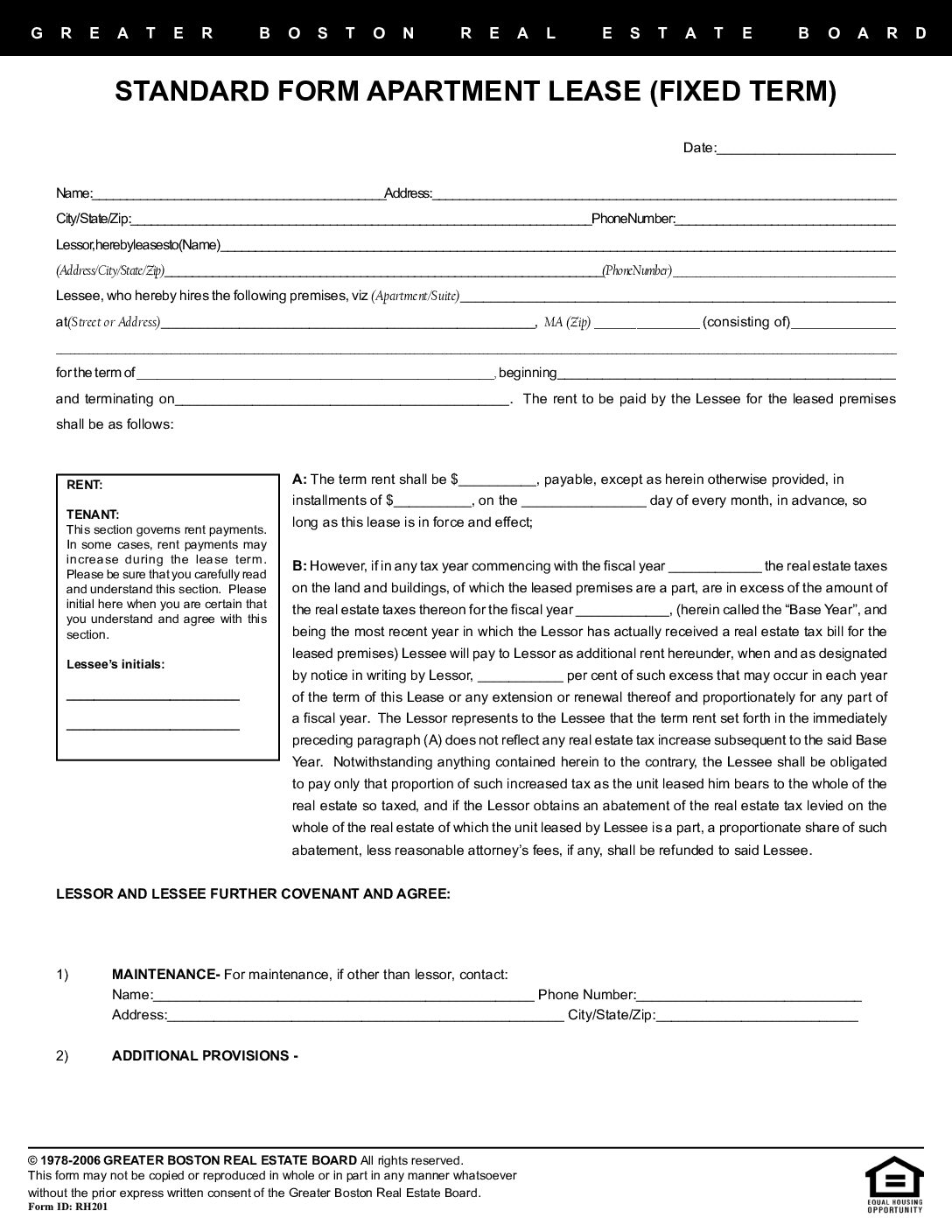By Type (8)

Commercial Lease
Download: PDF
 Month-to-Month
Month-to-Month
Download: PDF

Rent-to-Own-Option
Download: PDF
 Room (Roommate)
Room (Roommate)
Download: PDF
 Sublease Agreement
Sublease Agreement
Download: PDF
What the Massachusetts Residential Lease Agreement Form covers?
This document includes the following subjects that related to the laws regarding the relationship between the landlord and tenant in Massachusetts:
- Massachusetts Landlord-Tenant Act
- Security Deposit Law
- Lease Termination
- Landlord’s Access to the Property
- Rent Due Date and Late Fees
- Eviction Procedures
- Property Maintenance
- Required Disclosure Forms
Massachusetts Landlord-Tenant Act
Security Deposit Law
Summary (Chapter 186, Section 15B(1)(b)(iii)):
- 30 Days – Time limit to return the security deposit with interest.
- Itemized List – Any deductions must be itemized and sent to the tenant within 30 days.
- Maximum Amount – Equivalent to one month’s rent.
- Interest Requirement – Landlords must pay interest on deposits held over one year.
- Non-deduction – Normal wear and tear cannot be deducted from the security deposit.
Lease Termination Rules for Landlords and Tenants
Summary: Massachusetts law allows both parties to terminate a lease with the following notices.
- Landlord’s Right to Terminate – 30-day notice for agreement breaches or failure to pay rent.
- Tenant’s Right to Terminate – Tenants on a month-to-month lease may provide a 30-day notice without any penalties.
Landlord’s Access to the Rental Property
Rent Due Dates and Late Fees
- Grace Period – 30-day grace period before late fees apply.
- Notice to Quit – 14-day notice to quit.
- Maximum Penalty – The amount should be reasonable and outlined in the lease as there’s no law mandating maximum amounts for late fees.
- NSF Fee – 1% for checks of $2,500 or more. A $25 fee for bounced checks under $2,500.
Eviction Procedures and Notices
Property Maintenance Requirements
Required Disclosure Forms
Summary: Landlords must disclose certain information before the lease begins.
- Lead-Based Paint Disclosure (epa.gov) – Required for all properties built before 1978.
- Security Deposit Receipt (Chapter 186, Section 15B(2)(c)) – Receipt must outline terms for the tenant, including interest payments.
- Fire Insurance (Chapter 186, Section 21) – Landlord must disclose within 15-days of the lease start date.
- Follow-up Deposit Statement (Chapter 186, Section 15B(3)(a)) – Within 30 days of receiving the security deposit, the landlord must provide the tenant with a statement showing the deposit amount, bank name, location, and account number.
- Inventory Checklist (Chapter 186, Section 15B(2)(b)) – Within 10 days of receiving the security deposit or lease start, the landlord must provide a checklist for the tenant to note any defects. The tenant has 15 days to return it. Massachusetts law mandates a notice as well. The move-in checklist must include the following information:
”This is a statement of the condition of the premises you have leased or rented. You should read it carefully in order to see if it is correct. If it is correct you must sign it. This will show that you agree that the list is correct and complete. If it is not correct, you must attach a separate signed list of any damage which you believe exists in the premises. This statement must be returned to the lessor or his agent within fifteen days after you receive this list or within fifteen days after you move in, whichever is later. If you do not return this list, within the specified time period, a court may later view your failure to return the list as your agreement that the list is complete and correct in any suit which you may bring to recover the security deposit.”
